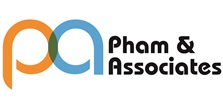
Judge Sides with NYT, Shuts Down SMS Patent Blitz
Wielding a patent for commercial text messages, Helferich Patent Licensing LLC has managed to score licensing deals with every m
Wielding a patent for commercial text messages, Helferich Patent Licensing LLC has managed to score licensing deals with every major cell phone maker in the market. Helferich also launched a campaign of licensing demands and infringement lawsuits against content providers beginning in 2008, seeking close to $1 million from companies that send hyperlinked texts.
And it was all working — up until Helferich went head to head with The New York Times Company and its lawyers at Gibson, Dunn & Crutcher.
On Wednesday a federal judge in Chicago sided with Gibson Dunn and lawyers from Holland & Knight and Covington & Burling, ruling that Helferich can't assert its patent against the Times Co., CBS Corporation, J.C. Penney Corporation Inc., and other companies that send hyperlinked text messages with breaking news and product alerts. The Times-led defense coalition won summary judgment on the question of patent exhaustion, persuading U.S. District Judge John Darrah that Helferich's licensing deals with handset makers bar it from suing text-messaging third parties.
"The doctrine of patent exhaustion is designed to avoid double recovery by a patentee, promote the orderly administration of patent rights, provide an efficient method for determining the termination of a patent monopoly, and promote fair competition," Darrah wrote in his opinion. "To permit Helferich to recover multiple times on the same patent by selling licenses to the patents piece by piece (or claim by claim) is contradictory to these policies."
The disputed technology was patented by inventor Richard Helferich in 1997. HPL has since licensed it to every cell phone handset maker in the country, and has filed about two dozen infringement suits against major retailers, media companies, and others. Helferich sued the Times Co. in 2010 and the other named defendants in the Chicago case — G4 Media LLC, CBS, Bravo Media LLC and J.C. Penney — in 2011. But the five companies decided to join forces to fight Helferich, which many view as a "patent troll" because it doesn't make products or provide services but merely uses its patents to obtain licensing fees.
"We're pleased that the judge agreed that what Helferich was trying to do amounted to double dipping," said Gibson Dunn's Brian Buroker, who led the defense coalition. "The messages the defendants send out make use of wireless devices that have already taken a license, so they shouldn't be held liable."
More than 100 companies have already licensed Helferich's technology at $750,000 a pop, according to The Associated Press. And the company has demanded licenses from at least 100 more, Buroker said.
"Many companies that weren't part of this lawsuit are pleased with the result," said Buroker.
Steven Lisa of the Chicago patent law firm Steven G. Lisa Ltd., who represents Helferich, was not immediately available to comment. Helferich can still ask the district court for reconsideration or appeal the decision to the U.S. Court of Appeals for the Federal Circuit.
In addition to Gibson Dunn for the Times Co., the defendants are represented by R. David Donoghue of Holland & Knight (for J.C. Penney) and Michael Markman of Covington & Burling (for G4 Media, Bravo, and CBS).
(By: Lisa Shuchman / Source: www.americanlawyer.com)


